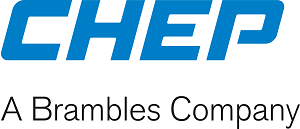

Demand for electric and hybrid vehicles– driven by environmental legislation and consumer choice – is now accelerating. Even during the current pandemic, EV & hybrid (PHEV) sales in Europe have been affected much less than those of their fossil fuel equivalents – with the long-term post-COVID forecast for electric vehicle sales to recover faster and reach 42% of the European car market by 2030.
This is driving increased investment in EV/PHEV production, with the batteries being the most critical and expensive component at 25-40% of the total cost of a vehicle today. But strict regulations on battery transportation are exposing manufacturers and suppliers to significant risk in terms of both cost and liability.
Lithium-Ion batteries are likely to dominate the EV/PHEV market for at least the next decade. However lithium is highly flammable, and large EV batteries are capable of leakage and violent thermal runaway if mishandled – potentially causing environmental and economic disaster.
This is why they are categorised as Class 9 Dangerous Goods (Packaging Group II), and their transport packaging requires rigorous certification by the United Nations. Batteries need to be kept from overheating, stable and enclosed so they can’t be exposed to conductive surfaces.
Because of these stringent requirements, one-way packaging becomes uneconomic. So CHEP has used its global scale and experience of working with the auto industry to create reusable solutions that take the risk and waste out of the battery supply chain.
CHEP’s Eurobin and IsoBin products are established containers used in domestic and international flows within the automotive supply chain. These have been specially adapted by CHEP to meet all UN requirements and customs certifications for dangerous goods transport, with over-fitting lids, strapping channels, and customisable inserts. There is even the option to add trackers to monitor both the location and condition of the batteries.
Companies don’t need to invest in such specialised packaging, because with CHEP they only pay for the packaging they need when they need it. And because CHEP is the world’s largest share and reuse pooling company, continuity and quality of supply is guaranteed, however the demand shifts.
“Lithium-Ion batteries are the most critical and risky components of the electric vehicle. CHEP is making sure that battery transport in the supply chain can be safe, fast, and cost-effective,” says Murray Gilder, VP CHEP Automotive & Industrial Solutions.
CHEP has been a global leader in reducing costs and increasing sustainability through reusable automotive packaging solutions for over 30 years, working with OEMs and Tier1s across all continents.
CHEP. Helping your supply chain move more with less.
Footnote 1: Deloitte: Electric vehicles – setting a course for 2030
Footnote 2: UBS – Tearing down the heart of an electric car:
Footnote 3: IEA – Global EV outlook 2020
Footnote 4: Convention concerning International Carriage by Rail (COTIF) Appendix C – Regulations concerning the International Carriage of Dangerous Goods by Rail (RID)